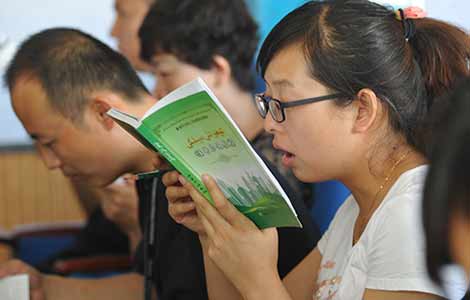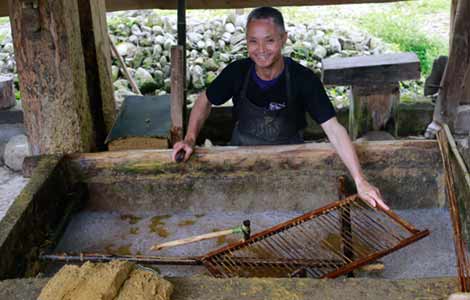China to expand medical outreach to HIV patients
Updated: 2013-08-09 14:48
(Xinhua)
|
|||||||||||
The normal count of CD4 cells, sometimes called T-cells, stands between 500 to 1,600 per cubic millimeter for a healthy adult, but HIV weakens the immune system by damaging functioning CD4 cells.
In China, to receive the free medication, a test would need to show that a patient's CD4 cell count is below 350 per cubic mm, according to the CDC.
Prior to the pilot program in Zhongshan county, it took at least four weeks to schedule a CD4 test after someone was diagnosed with HIV. Once proven eligible for free medication, the carrier would need to wait at least another four weeks to initiate treatment.
The process often required patients to shuffle back and forth between a hospital and a local disease control and prevention center for paperwork and medical check-ups. It became quite a burden for some carriers, many of whom eventually gave up on treatment.
However, under the pilot program, health authorities in Zhongshan county hoped to streamline the process. They scrapped the CD4 test as a threshold for free medication and instead, made medication accessible to all patients. This is how Zhao and her husband were able to receive treatment.
All the procedures, including tests, consultations, paperwork and check-ups are conducted at the Zhongshan County People's Hospital, where Zhao and her husband take their prescribed medicine every Wednesday.
Effective, but challenges remain
Offering free treatment to HIV carriers who have not yet been diagnosed with AIDS has proven effective in reducing the mortality rate and virus transmission in many counties, said Ge Xianmin, an AIDS prevention official with the Guangxi health authorities.
Despite the positive effects, health authorities in China balked at the prospect of increasing financial strains imposed on the fiscal budget as a result of expanded treatment, Ge added.
Zhongshan county spearheaded the pilot project, as the autonomous region has struggled to rein in rising cases of HIV over the years.
"To ensure the expanded coverage of free treatment, health authorities in the region earmarked more than 2 million yuan (326,830 US dollars) to run the program," Ge said.
Related Stories
Free drugs for children with HIV 2013-08-02 11:37
WHO mulls earlier therapy offering for HIV 2013-06-30 17:29
Canceling HIV tests for teachers sparks debate 2013-05-29 20:02
HIV no longer barrier to teaching in Guangdong 2013-05-27 10:05
More HIV cases among Chinese students 2013-04-01 07:06
Today's Top News
China's inflation rises 2.7% in July
Budget show cuts in provincial spending
Trade data improve economic prospects
Pharm giant suspected of bribery
Beijing rejects protest over patrol
China Unicom tests 4G network
Switching tactics in ambitious new move
US realty market 'connects dots' with China buyers
Hot Topics
Lunar probe , China growth forecasts, Emission rules get tougher, China seen through 'colored lens', International board,
Editor's Picks

|

|

|

|

|

|





